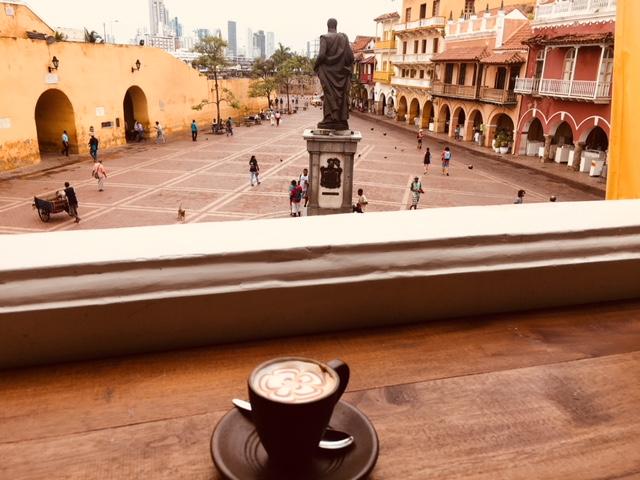

In a recent trip to Cartagena Colombia I found myself fascinated with the sun-drenched, hypnotic world of author Gabriel Garcia Marquez. Although having settled in Mexico City, he would make many trips back to Cartagena to visit his parents and siblings and a city that would inspire many of his stories and characters. After wondering the streets of el Centro for a few days it is not difficult to see how Marquez’s magical realism literary style was inspired and crafted—or perhaps that Cartagena’s dreamlike feel, with its seamless and at times vigorous blend of Caribbean and Latin culture, found Marquez, who would simply become its scribe.
As a Miami-based Executive Coach, I wasn’t thinking about leadership at all. I was wondering about Marquez’s ability to intertwine dream and reality, about the centuries of conquests of this canon-lined, walled city, and the astonishing gold animal carvings of the pre-Columbian Zenu tribes that lured the Spanish conquistadors. And more superficially, I was just craving another limonada de coca or arepa con heuvos.
And it wasn’t just the charm of el Centro that captivated me, it was even the majestic Bocagrande beaches, which is a sprawling, wonderfully dirty and raucous marketplace teeming with fruit vendors, crippled beggars, blaring Mariachi music, pick up soccer games, and the sea so crowded that I wondered if we were all swimming to the edge of the world. My mind reverted to comparisons—to Lagos, or Rio—to try and make sense of this coastal circus that was at once invasive and exhilarating.
And it was the rum-soaked streets of Getsemani, with Cuban son music pouring out from café windows and shirtless men playing dominos in the streets, slamming their chipped wooden pieces onto makeshift tables as their wives sinuously danced champeta alone in the open glowing doorways, the moonlit plazas awash in smoke, dizzying Caribbean dancers, and smells of fried pork, cheese and corn.
I had entered Marquez’s world. And then it clicked:
You can approach travel as an opportunity to improve leadership skills.
- Travels challenges us to De-role.When traveling, don’t become over-identified with your position/title/role. Stop filtering everything through the lens of your role as an executive. Take a temporary mental reprieve from thinking about work and allow your mind to wonder. This can allow us to come up with fresh and creative ideas and insights.
- Travel invites us to be Curious.Traveling, like children, invites us to be curious, play and explore. Be curious about the environment, people and culture you are traveling. This isn’t just about crossing something off your “bucket list”—this is about actually engaging in the local culture with an attitude of openness, interest and suspension of judgment.
- Travel helps us be Mindful. I am referring to a specific ingredient of mindfulness—and that is non-judgmental awareness. Simply practice experiencing each moment without comparisons, analysis or judgement. Notice how your experience of the moment expands and even more pleasurable. Stop saying “this place reminds me of or is just like ______”.
- Travel helps us clarify our Values.By exposing ourselves to different cultures and world-views, travel can help us reflect on, clarify and re-confirm our own core values and cultural biases, in both work and one’s personal life. The exposure to new people and culture can also help you broaden your sense of meaning and purpose.
- Travel gives us an Aerial View.When traveling, you have the opportunity to step out of the day to day operations of the business and see things from a distance. This can allow you to gain objectivity and re-gain a more comprehensive perspective of your business and life. Take this time to generate or re-commit to goals, acknowledge areas you are avoiding, and develop new solutions.

1673 Comments. Leave new